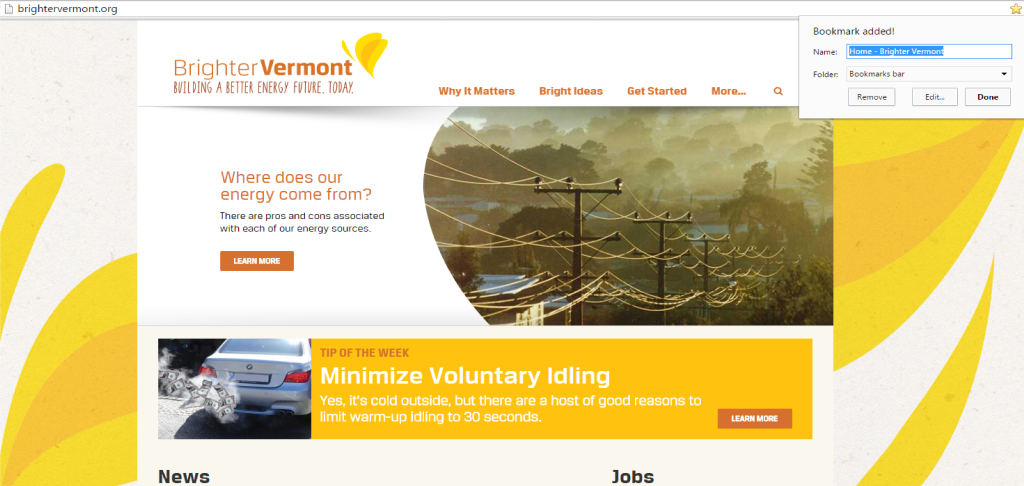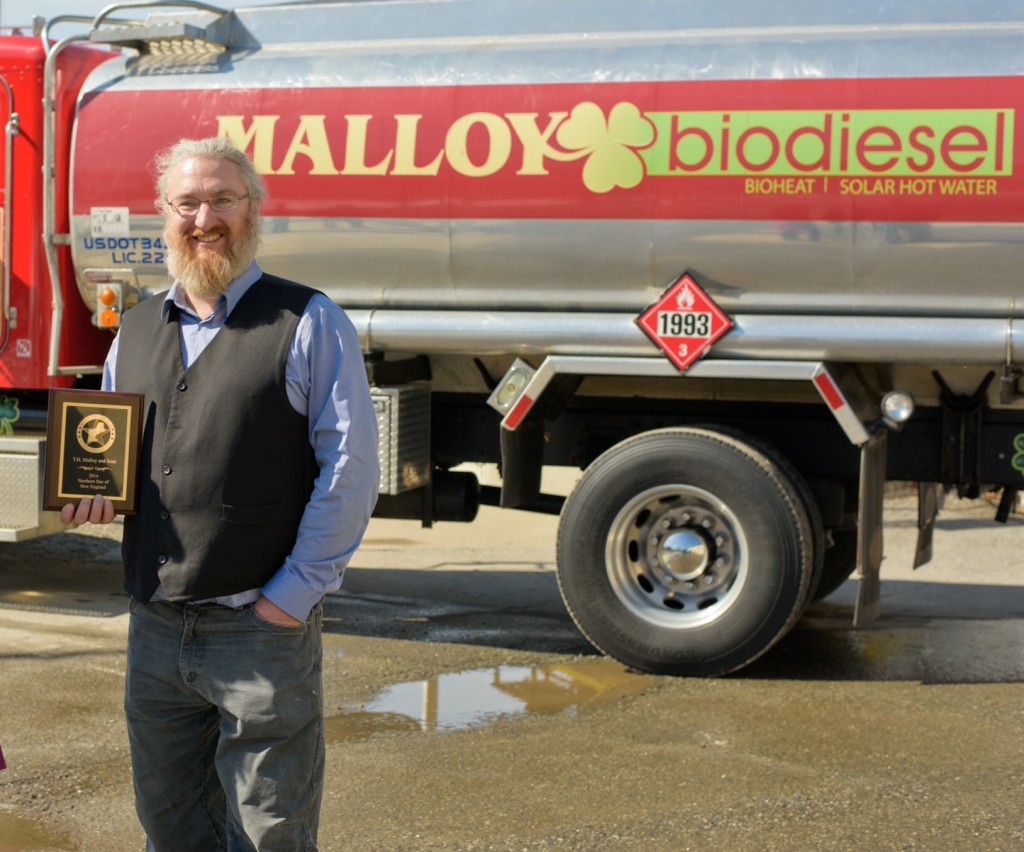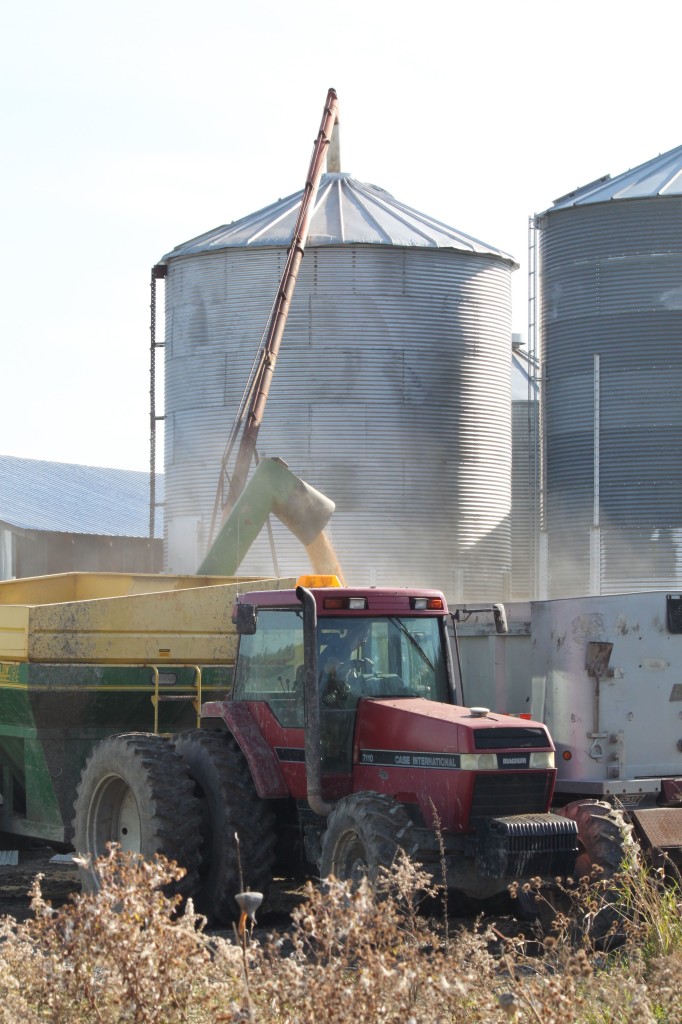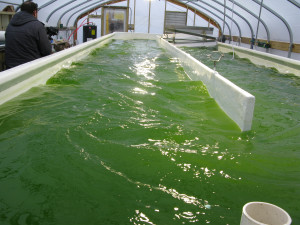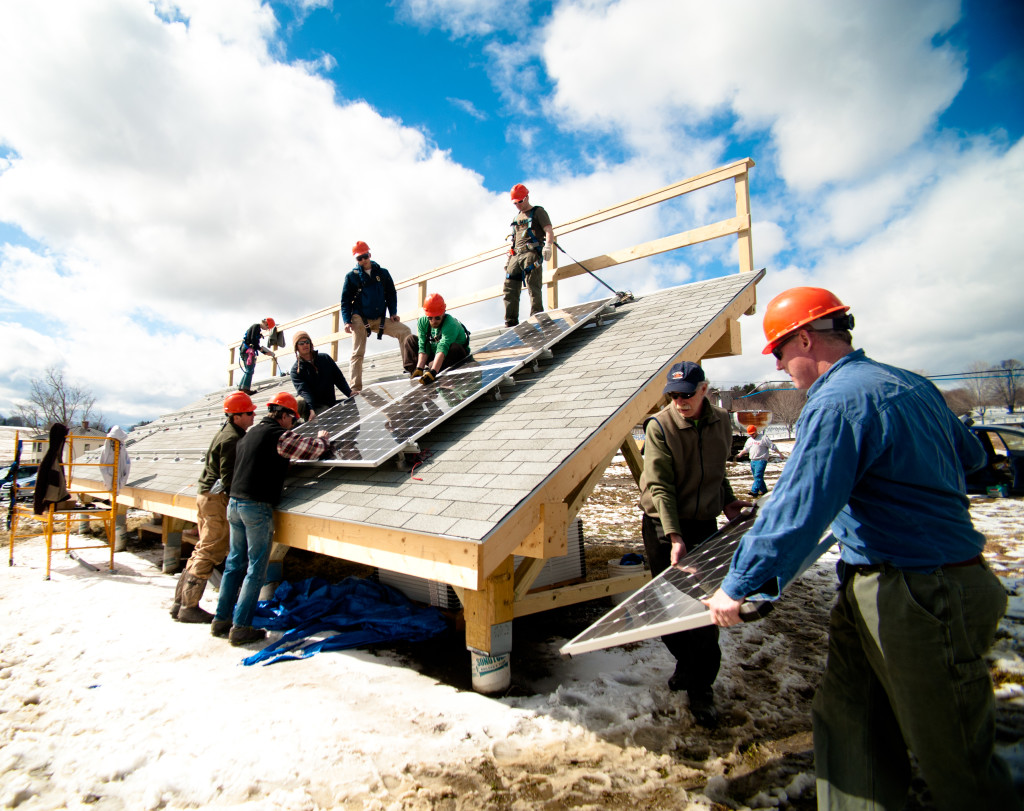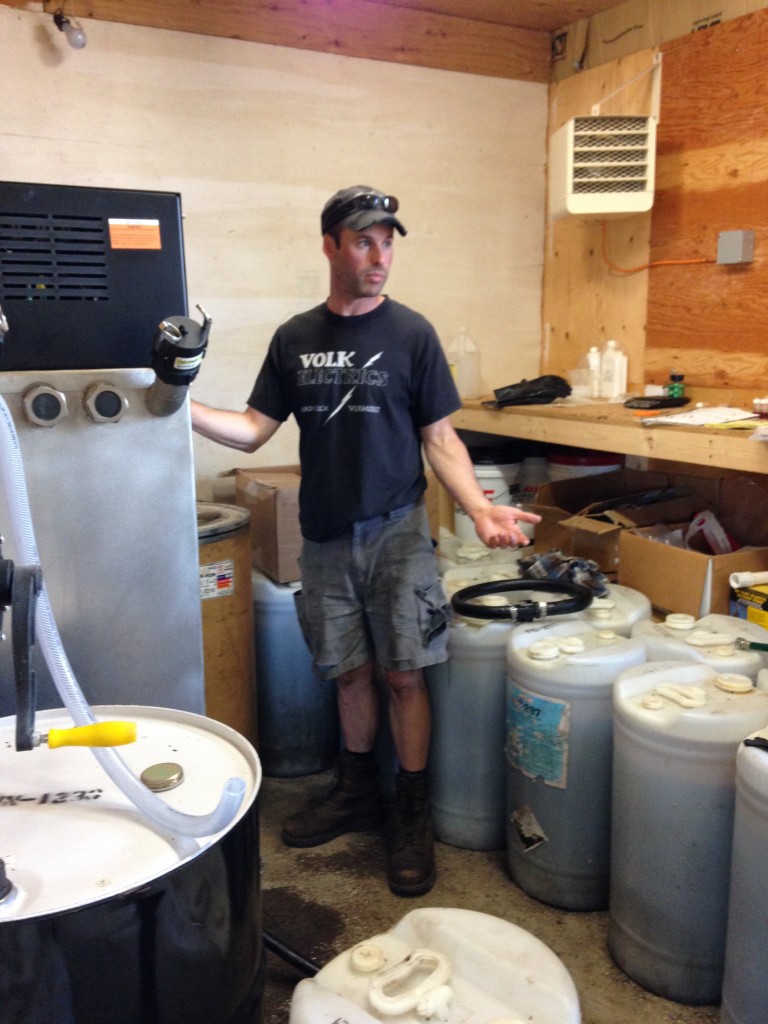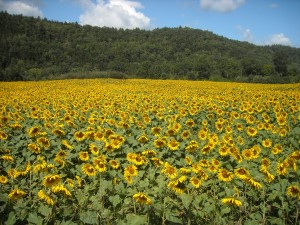20 Apr 2015
Getting Smart About Vermont Energy
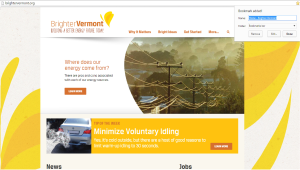 The State of Vermont 2011 Comprehensive Energy Plan calls for 90% of Vermont energy needs to be met through efficiency and renewable sources by 2050. As Vermont residents witness continued high numbers in clean energy jobs, and advanced renewable energy legislation they will also need to take responsibility for Vermont to meet these goals, as every Vermonter will need to contribute in some way for Vermont to meet this ambitious goal. Enter Brighter Vermont, an action oriented program of the Energy Action Network, to help everyday Vermonters rethink where their energy comes from, how they use it in their daily lives, and what they can do to help the state reach its 90% by 2050 goal.
The State of Vermont 2011 Comprehensive Energy Plan calls for 90% of Vermont energy needs to be met through efficiency and renewable sources by 2050. As Vermont residents witness continued high numbers in clean energy jobs, and advanced renewable energy legislation they will also need to take responsibility for Vermont to meet these goals, as every Vermonter will need to contribute in some way for Vermont to meet this ambitious goal. Enter Brighter Vermont, an action oriented program of the Energy Action Network, to help everyday Vermonters rethink where their energy comes from, how they use it in their daily lives, and what they can do to help the state reach its 90% by 2050 goal.
The Brighter Vermont website is packed with testimonials and videos shared by individuals who describe the financial decisions they are making to positively affect the environment, Vermont’s economy, and their wallets. A family in Rutland reports on small home improvement they have made to keep out the Northeast cold out and share a video about lowering energy costs, with the help of Green Mountain Power, by properly weatherizing their home, changing to energy efficient LED bulbs, electing for a heat pump, and adding solar panels. The overall transition has made them a more energy conscious family and was achievable with a ten year loan the family is pleased to see being offset by reduction in energy costs.
A family in Burlington’s journey towards reducing their carbon footprint is documented in a fun testimonial video where the family picks out their first electric vehicle. They were able to replace one of their family vehicles with a zero emission Nissan Leaf (hyperlink to video) that was available with an affordable two year lease. The switch from a classic Vermont staple vehicle, a Subaru, to the Leaf, has helped the family not only save money at the gas pump, but the, as the family reports, electricity used to charge the vehicle comes from renewable energy. They enjoy educating their friends and neighbors about this carbon footprint transition.
Brighter Vermont also hosts ways for businesses, schools, and towns to become more efficient and promote renewables in their community. Methods for how schools and businesses have become more efficient by transitioning to modern wood heating. A featured video produced by VEIC (hyperlink) features 54 schools from across Vermont currently heating with wood chips and pellets which provides heat for nearly one third of k-12 students across Vermont. Our own Vermont Bioenergy Initiative Vermont on-farm energy videos are also featured for farmers to learn more about the emerging areas of oilseed, grass, and algae biofuel.
There is much that needs to be done in the fight against climate change and moving Vermont away from its reliance on fossil fuels. While this road can be daunting, it is important to remember that we can all make small changes that will benefit us, our community, and our state. And the Brighter Vermont website provides a fun and interactive platform for individuals, families, businesses, and institutions to learn how to contribute and share these efforts with others so Vermont can take steps towards meeting our renewable energy goals for our future.
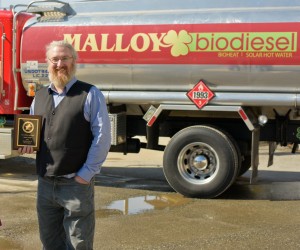
Jim Malloy, of Plainfield, Vermont, is recognized for displacing petroleum with biodiesel in New England’s transportation sector.
Jim Malloy, of Plainfield, Vermont, is being recognized for his contributions to reducing the use of petroleum fuel in the transportation sector. His business, TH Malloy and Sons in Newport, Rhode Island, is being recognized with the New England Northern Star Award as one of the top fleets for reducing their emissions through the use of biodiesel made from recycled restaurant oil.
The 75-year-old family business is a distributor for Newport Biodiesel, also of RI, who produces biodiesel from recycled restaurant oil. Both companies are being recognized with the award.
Each recipient of the award demonstrated a deep commitment to the goals of the Clean Cities program through use of alternative fuels, alternative fuel vehicle purchasing, and petroleum reduction practices. The designation as a Northern Star required that the fleets be a stakeholder in their local Clean Cities Coalitions and that they meet a list of criteria showing their commitment to Clean Cities’ initiatives.
Malloy introduced biodiesel fuel into his RI company’s distribution fleet and has helped 4,000 customers replace oil with biodiesel. His efforts have displaced nearly 4 million gallons of oil in the past seven years. Malloy is also being recognized for the impact he has had on reducing emissions statewide by working in the RI legislature to make biodiesel a more affordable fuel option.
Replacing petroleum fuel with biodiesel that is produced locally from recycled cooking oil has the benefits of increased energy security, stronger local economies, improved air quality, and reduced contributions to global climate change.
“I am honored to be recognized,” says Malloy. “I’m passionate about recycling waste and creating an outlet for less expensive and cleaner-burning domestically-made fuel that displaces petroleum.”
Malloy is also owner of Black Bear Biodiesel in Plainfield, Vermont, which is a two-year-old restaurant oil collection recycling service and biodiesel distributor serving northern and central Vermont. The company plans to have drive-up fill-up stations at their Plainfield location in late May.
“I look forward to bringing this same passion for recycling and emissions reduction and petroleum displacement to Vermont as well, while at the same time saving locals money by providing a more efficient, cleaner fuel and an affordable replacement for petroleum,” says Malloy.
The other four recipients of the award are the City of Boston Massachusetts, the City of Nashua New Hampshire, Oakhurst Dairy in Maine and New Hampshire, and the University of Vermont.
The Northern Stars of New England program
was funded through a U.S. Department of Energy grant that identified barriers to the proliferation of alternative fuels and how to remove them. There are nearly one hundred Clean Cities Coalitions around the country whose purpose is to help reduce the use of petroleum, cut emissions, and promote alternative fuel options. The Northern Stars program was developed by the five Northern New England Clean Cities Coalitions and is just one of the ways that these coalitions promote the use of alternative fuels in fleets.
This project is funded by a U.S. Department of Energy grant awarded to Maine Clean Communities, a program of the Greater Portland Council of Governments (GPCOG), and other Northern New England Clean Cities Coalition grant partners.
More information on the Northern Stars program can be found on the Vermont Clean Cities Coalition website at www.uvm.edu/vtccc.
06 Apr 2015
Upcoming North American Bioenergy Events
Make sure to check on the Vermont Bioenergy Initiative website for more national bioenergy events as we will be updating this list!
- May
- June
- WasteExpo 2015 June 1-5, 2015 Las Vegas Convention Center
- 5th International Conference on Algal Biomass, Biofuels and Bioproducts. 7 – 10 June 2015. San Diego, USA
- BIO International Convention June 15-18, 2015. Philadelphia, PA
- Bioenergy 2015,June 23-25. Washington, DC
- GAI AgTech Week June 22-24, 2015 San Francisco, CA
- July
- 19th Annual Green Chemistry & Engineering Conference (GC&E). July 14-16, 2015. N. Bethesda, MD
- BIO World Congress on Industrial Biotechnology. July 19 – 22, 2015. Montreal, Canada
- EnergyPath 2015, July 20-24. Scranton, PA
- BioFuelNet Advanced Biofuels Symposium 2015. July 22 – 24, 2015. Montreal, Canada
- August
- September
- Switchgrass III. September 30 to October 2, 2015. Knoxville, TN
- 2nd International Conference on Past and Present Research Systems of Green Chemistry. September 14-16, 2015. Orlando, Florida
- Ag Innovation Showcase September 14-16, 2015 St. Louis, MO
- Algae Biomass Summit September 30-October 2, 2015 Washington, DC
- October
- November
Vermontivate launches fun challenge for building hope and community sustainability
Vermontivate, an on-line/real-world game, brings fun and creativity to the serious and important work of tackling climate change. Players from around the state will spend six weeks from March 23 – May 2, 2015 racking up points on a wide range of challenges ranging from installing energy efficient light bulbs and starting composting piles to establishing community solar CSAs, test driving electric vehicles, and inventing hybrid modes of transportation.
“Climate change is one of the most significant issues we face as a society,” says Vermontivate co-founder Kathryn Blume, “and most people don’t know what they can do to make a difference. Vermontivate is an entertaining, educational, and competitive way of taking meaningful action and building strong communities. Plus, we celebrate the end of the game with a Ben & Jerry’s ice cream party on the State House lawn in May. Climate action doesn’t get much better than that!”
From global warming newbies to well-educated sustainability mavens, people of all ages and experience levels are invited to play. People who don’t live in Vermont can also register to play on behalf of their favorite Vermont team.
The game, now in its fourth year, has kicked it up for 2015. Thanks to increased funding from a wide range of donors, foundations, and state agencies, they’ve built an entirely new website that looks like a quirky, old-fashioned board game. Challenges have been created to align with
Vermont’s highest-level climate goals, and are designed for maximum real world impact. The game will also feature a video contest, team challenges, and the chance to win a wide range of prizes including gift certificates from local restaurants and free pints of ice cream.
“There are a lot of great energy saving games out there,” says Blume, “but Vermontivate is one of the few gamification strategies that tackles full spectrum sustainability. The core challenges are around energy, transportation and food, but we also play with everything from waste reduction and water conservation to Gross National Happiness and the sharing economy.”
“We have something for everyone,” says game co-founder and Vermont Energy Investment Corporation consultant Nick Lange. “As we say to our players: Play Well, Do Good, Be Great!”
For more information and to get on the registration mailing list, visit vermontivate.com
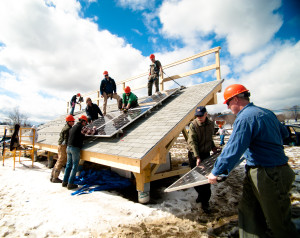 Vermont Technical College is committed to educating students as the workforce to support renewable energy systems and infrastructure development in Vermont. A number of technical “green trainings” are being offered in the coming months ranging from solar PV, solar hot water, waste water, OSHA standards, and wetland delineation.
Vermont Technical College is committed to educating students as the workforce to support renewable energy systems and infrastructure development in Vermont. A number of technical “green trainings” are being offered in the coming months ranging from solar PV, solar hot water, waste water, OSHA standards, and wetland delineation.
Vermont Tech is offering introductory and advanced classes that serve as a great opportunity for individuals to enter the growing field of solar installation and for the existing workforce to advance their skill set. By successfully passing the NABCEP Entry Level exam, students at an introductory level will demonstrate the basic knowledge necessary to apply the fundamental application principles, design installation, and operation of grid-tied and stand-alone PV Systems. Renewable Energy Vermont (REV) recently approved this 40-hour training to qualify any individual for Provisional Partnership, regardless of their status of an electrical license.
For the more advanced PV installer, an upcoming one day course on April 15th will provide continuing education for the Electrical S license in solar technology. Taught by Dan Kiney, in compliance with the Vermont State Electrical Board, this class has been approved by the VT State Electrical Board for 8 S License Continuing Education Hours.
The 16 hour Introduction to Solar Hot Water being held May 2-3 has been approved for licensed plumbers by REV for Provisional Solar Hot Water Partnership and only requires a basic knowledge of electrical systems.
Additionally, a BPI Dual Certificate Training scheduled for June 1-5 will focus on the building sciences related to physics and control strategies for air, heat, and moisture and will prepare students to test for their Building Analyst and Envelope Professional Certifications.
Learn more about these and other Vermont Tech Continuing Education & Workforce Development Green Trainings.
Burlington, VT, March 16, 2015– Vermont Businesses for Social Responsibility (VBSR)
announced that it secured funding to continue the Business Energy Action (BEA) program through 2015. BEA works with companies to help them implement energy efficiency strategies that help to save 5% per year.
This additional funding for BEA is provided by the Vermont Bioenergy Initiative, a program of the Vermont Sustainable Jobs Fund. The Vermont Bioenergy Initiative connects diversified agriculture and local renewable energy production for on-farm and community use by supporting research, technical assistance, and infrastructure development in emerging areas of bioenergy, and overall education on the benefits of renewable energy and energy efficiency. Funding was made possible by the Office of US Senator Patrick Leahy and the US Department of Energy.
“We’re grateful for the support of Vermont Sustainable Jobs Fund as we work to help Vermont businesses reduce their need for fossil fuel,” said Andrea Cohen, Executive Director of Vermont Businesses for Social Responsibility. “Business Energy Action helps businesses be not only more responsible consumers of energy, but also helps their bottom line to create a more vibrant economy here in Vermont.”
Business Energy Action is currently working with more than 80 member businesses across the state.
About VBSR
Founded in 1990, VBSR is a statewide, non-profit business association with a mission to advance business ethics that value multiple bottom lines: economic, social, and environmental. Through education, public influence, and workplace quality, VBSR strives to help 760+ members set a high standard for protecting the natural, human, and economic environments of the state’s residents, while remaining profitable. Learn more or join the cause at www.vbsr.org.
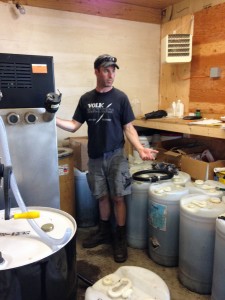
Nick Meyer of North Hardwick Dairy, an Organic Valley milk producer, was able to reduce energy costs and increase self-sufficiency by growing sunflowers for biodiesel and meal while maintaining a wind turbine to help cover electricity needs.
We all know food gives us energy. But we might sometimes lose sight of the amount of energy involved in producing, processing and delivering that food to our plates. Everything requires energy: from tractors plowing and planting to producing fertilizer or compost; from milking cows and keeping that milk cold to storing and transporting vegetables. This energy costs farms real money and it is sometimes a major category of expense. Energy costs are typically one of the highest for farms, rivaling feed costs on dairy farms and labor costs on vegetable farms.
As Vermont experiences growth in food-related businesses and jobs, decisions about energy become more and more important. This has been part of Vermont’s Farm to Plate Strategic Plan and the associated network of people working on implementing that plan. The plan includes goals related to energy, including; reducing farm production expenses, reducing adverse environmental impacts from farm and food system activities, reducing energy use, and increasing renewable energy use in the food system.
One example of how this is actually working is a group called the Farm to Plate Energy Cross Cutting Team: a group of energy specialists from Efficiency Vermont, the Agency of Agriculture, UVM’s Rubenstein School and UVM Extension, The Vermont Bioenergy Initiative, USDA NRCS and private companies. The team meets regularly to learn from each other and take on specific projects such as the recent set of seven “Energy Success Stories” which were released at the 2014 Farm Show, showcasing farms, businesses, vendors, installers, and technical assistance providers who have made a difference with energy efficiency savings and renewable energy production.
Chaired by Efficiency Vermont planning manager, JJ Vandette, the energy team will continue to address the Farm to Plate Efficiency and Renewable Energy Goal to decrease overall food system energy consumption and increase food system renewable energy production and the Farm to Plate Environmental Impacts Goal to decrease adverse environmental impacts from farming and food system activities—while helping to decrease production expenses—also a goal of the Farm to Plate Strategic Plan.
The team is always interested in having new members. If you have an interest in energy, especially energy on farms and in the food system, we’d love to hear from you. JJ Vandette can be reached at jvandette@veic.org or 802.540.7915.
Data sources and analysis at www.vtfarmtoplate.com/getting-to-2020.
2014 was a busy year for the Vermont Bioenergy Initiative as we engaged in national outreach efforts to share our work connecting diversified agriculture and local renewable energy production for on-farm and community use in ways that be applicable to rural areas around the country. These rural areas are often at “the end of the pipeline” and are subject to higher and more volatile costs for energy. The Vermont Bioenergy Initiative “local production for local use” model shows that rural communities can produce some of their own energy, thereby improving their energy security and benefitting from more predictable and affordable energy prices. Any farm in any part of the country can grow and process their own fuel, using the best practices developed by the collaborating farms and UVM Extension researchers working in partnership with the Vermont Bioenergy Initiative. Funding for our program work to support research, technical assistance, and infrastructure development in emerging areas of bioenergy was secured by US Senator Patrick Leahy and the US Department of Energy.
Recent news we distributed to local, regional, and national audiences includes:
Local production for local use is biofuel model that works in Vermont.
Vermont sunflowers to help provide biodiesel power.
We have worked with several regional and national publications to secure editorial specifically featuring oil crops for on-farm biodiesel and feed, and grass energy for heating.
Check out the recent interview with our UVM Extension consultant and agricultural engineer, Chris Callahan in Biofuels Journal.
Read about alternative energy innovations on the farm featuring farms a part of the Farm Fresh Fuel Project in Farming Magazine.
The Grass Energy Report we released summer 2014 was featured extensively in both Renewable Energy World and On Pasture Magazine.
Visit the Green Energy Times website for our ongoing column, Emerging Frontiers in Bioenergy and follow the Vermont Bionenergy on Twitter for current news, trends, and tweets on renewable energy in Vermont and beyond.

Aegis Renewable Energy a Vermont based renewable energy company designed and installed the first commercial wind turbine in New York City at “Sunset Park” SIMS Municipal Recycling plant in Brooklyn. Aegis erected the 100kW wind turbine in December, 2014 and partnered with Vermont based wind turbine manufacturer, Northern Power Systems located in Barre, Vermont.
The project was recently featured in the New York Times: “In less than a month of operation, the first large-scale wind turbine to be installed in New York City, standing more than 160 feet tall, has produced enough energy to power two homes for over a year, or one 20-watt light bulb for over a century.”
The energy produced from the wind turbine “is expected to provide 4 percent of the energy used by the plant,” the Times article continues. Aegis’ CEO, Nils Behn, was also quoted in the article: “The Sunset Park waterfront’s wide-open nature makes it a prime spot for harvesting wind.”
Aegis won the project through a competitive bid process in 2011 and immediately began the electrical and foundation design process as well as completing various studies including sound and wildlife impact analyses, all of which were critical components in securing grants and permitting for the project.
Aegis has partnered with Northern Power Systems on 15 projects to date, “Northern’s undisputed position as the world leader in the 100kW wind turbine market, and their uncompromising commitment to quality, has been a key component to our success and theirs” said Nils Behn, CEO of Aegis.
During the ribbon cutting ceremony in New York, Northern Power CEO Troy Patton said “Northern Power leverages knowledge from over 400 wind turbine projects around the world to provide installers with training on the best practices for smooth and efficient installations”.
Aegis partners with other Vermont companies, including Green Mountain Credit Union which partnered with Aegis to create a community solar loan program, and the Vermont Sustainable Jobs Fund (VSJF)- Flexible Capital Fund which provided growth stage royalty financing to help Aegis expand its business operation and create more jobs in Vermont’s renewable energy sector.
About Aegis Renewable Energy
Aegis Renewable Energy offers full-service community-scale renewable energy solutions for farms, businesses, non-profits, and municipalities. Wind, Solar and Anaerobic digesters (cow manure and food waste) are included in Aegis’ services designed to help clients save money and the planet. Aegis Renewable Energy is located in Waitsfield, Vermont and provides cost evaluation, permitting, and financing support, installation, and maintenance services throughout Vermont and New England. To learn more about Aegis Renewable Energy, please visit www.aegis-re.com.
About Northern Power Systems
Northern Power Systems designs, manufactures, and sells wind turbines and power technology products, and provides engineering development services and technology licenses for energy applications, into the global marketplace from its US headquarters and European offices. Northern Power Systems has almost 40 years’ experience in technologies and products generating renewable energy. Northern Power Systems currently manufactures the NPS™ 60 and NPS™ 100 turbines. With over 6 million run time hours across its global fleet, Northern Power wind turbines provide customers with clean, cost effective, reliable renewable energy. To learn more about Northern Power Systems, please visit www.northernpower.com.
If you would like more information about this topic, please contact: Sonia Behn 802-496- 5155 or email at sbehn@aegis-re.com.
16 Feb 2015
Upcoming Farm Energy IQ Training

It’s not too late to register for the upcoming Farm Energy IQ Training for New England Agricultural Service Providers. This training will take place starting Monday, February 23rd at 8:00 a.m. and will end Wednesday February 25 in Fairlee, Vermont. Organized by individuals from the University of Vermont Extension Service, Penn State, and Rutgers University, this three day training is a great opportunity for those interested in on farm energy to learn and apply their skills as well as network with other attendees. The Farm IQ Energy Training is funded generously by Northeast Sustainable Agriculture Research and Education (SARE) Program as part of a regional professional development program to bring the latest developments in the field to individuals who can best apply them.
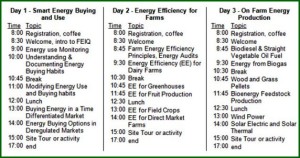
This conference will provide a range of opportunities to learn or improve energy purchasing, calculating, conservation, production, and analysis.Attendees will even have the opportunity to apply skills via hands-on activities and by visiting local operations. Over the three days these lessons will be compared for application on farms in different settings. In addition, attendees will receive a comprehensive binder with all the material covered in the workshops as well as supplemental materials to refresh and share material as well as continue learning.
This conference is a great opportunity to solidify one’s knowledge by learning from on hand specialist and being immersed with in the material. If you happen to miss this particular training, the same workshop will be offered in Pennsylvania, March 10th to the 12th and again in New Jersey from April 8th to the 10th.
Read more about renewable energy events around the country on the Vermont Bioenergy Field Notes blog




